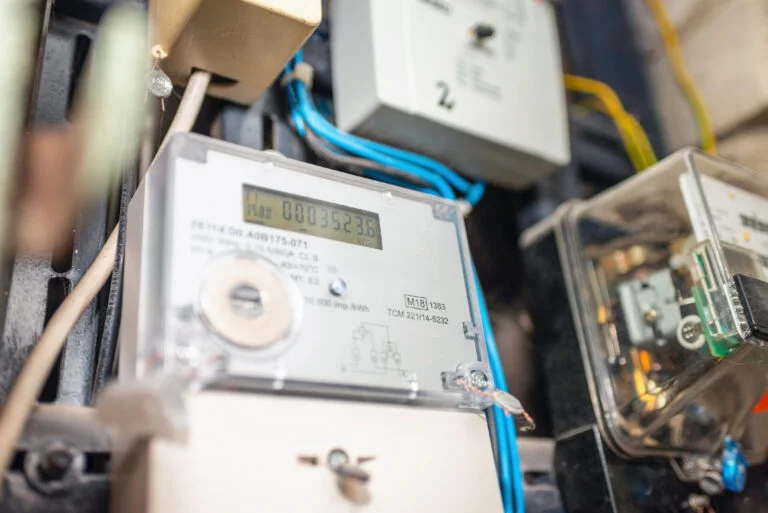When the time comes again for your current business energy contract to expire and there are some uncertainties about obtaining your future contract, whether it be regarding price rises, term lengths, or suppliers, it is always worthwhile taking many variables into account and seeking expert guidance to support you.
In-fact, this process may be rather daunting for many organisations, especially given the current market volatility. The first call to action would be to learn about your current energy usage and the businesses high-energy consumption zones, something you can retrieve from your broker or alternatively request using our contact form.
With the current volatility, it comes as no surprise that more and more companies have postponed the assessment of their existing contracts or looking into their alternatives for renewal and are now subject to considerably higher rates than if they were to secure three to four months ago. When they do get around to it, it is frequently too late to make a major impact, forcing firms to pay higher market rates since they are unable to find the best deals in time. Even worse, some businesses wind up with “out of contract” or “rolled-over” tariffs.
But this poses the question, should you further delay securing a fixed business energy contract hoping for improvements in the market? No.
Unfortunately, as we approach the harsher winter months, there is growing concern that companies will naturally increase their demand for gas and electricity for day-to-day operations, placing further strain on these supplies. From the perspective of an economic model of supply and demand, when a supply is limited but there is an increasing demand for it, prices will inevitably rise, as is extremely expected in the gas and electricity markets. In reality, this is already happening with wholesale market curves beginning in winter 2022.
Even with the Government introducing financial support to businesses who have either tied in to a contract or ones that are currently sat out of contract, if you do not sort a fully fixed contract, you could still be liable to fluctuations in non-commodity charges which make up an estimated 25% of your total unit rate.
Here are some reasons why you should look into your future business energy contract now rather than later:
-
Swapping suppliers can take time and planning
There is now an abundance of suppliers in the market, all offering similar products. However, there is now a greater level of competition than ever before, so if you want to get the best deal possible, you should shop around. If a business wants to switch suppliers, it must provide proper notice, which is usually 30 days but can be more. It also takes time to research new suppliers, compare offers, and negotiate the best price. As a result, you must assess your current contracts in good time, preferably around six months prior to the expiration date of your present business energy contract. Further to this, with suppliers' contractual terms and conditions are growing increasingly complex, you must take the time to study the fine print of your T&Cs and their implications to make the best decision.
-
It's one of your largest overheads
If this wasn't the case before the rise in wholesale energy, it might be the case now. Outside of the cost of labour, energy is sometimes neglected yet is likely one of your biggest expenses. Therefore, there may be the greatest opportunity for cost savings against your energy budget. Most of the time, a third party can help you examine these expenditures to make sure you're getting the best deals and contracts.
-
Energy Bill Relief Scheme (EBRS)
Business contracts that are variable, deemed, or otherwise (such as flexible contracts) will be discounted based on the difference between the government-supported price and the projected wholesale price. Essentially, rates will be subject to a "maximum discount" that was established at the start of the programme at £345/MWh for electricity and £91/MWh for gas. In contrast, the discount for fixed contracts will reflect the difference between the price that the government supports and the projected wholesale price on the day the contract was agreed. Because of this, the government advises any business without a contract to sign one right away so that the necessary energy price reductions will be applied automatically for the length of the scheme. While you will still receive assistance from the program if you are paying out-of-contract tariffs, you receive a much greater benefit if you are in contract.
-
Out of contract rates are notoriously expensive
Failure to renew your present energy contract or move to a new supplier might expose your company to being locked into uncompetitive, out-of-contract or rollover tariffs for up to 12 months, or even subject to variable rates that can fluctuate daily, leaving you paying more than 70% above contractual rates. Energy providers determine how much they will need to purchase based on the terms of their customers' contracts and purchase their supply from wholesalers at current pricing. If providers see that half of their customers are on these rates, they won't know how much energy they need to purchase in advance, so these rates must include a risk factor in case these clients switch rates unexpectedly and leave providers with surplus energy. This is one of the main factors driving up these prices, and suppliers are also increasing out-of-contract prices. In contrast, the discount for fixed contracts will reflect the difference between the price that the government supports and the projected wholesale price on the day the contract was agreed. Because of this, the government advises any business without a contract to sign one right away so that the necessary energy price reductions will be applied automatically for the length of the scheme. While you will still receive assistance from the programme if you are paying out-of-contract tariffs, you receive a much greater benefit if you are in contract.
The above highlights the importance of securing a fixed term contract sooner rather than later, however businesses need to take in to consideration the type of contract you need, with most suppliers offering three types of fixed term contracts, such as;
-
Fully-Fixed
A fixed-rate tariff provides guaranteed standing charges and unit rates, establishing the price you'll pay for your energy for the duration of your contract length, offering the maximum level of budget certainty while protecting you from energy market spikes. Overall, apart from the climate change levy, it protects you from all rising wholesale costs.
-
Flexible
A flexible contract provides organisations with an alternate means of acquiring energy, analysing wholesale market movements in order to spread the risk of purchasing energy over the course of your contract, taking advantage of market ups and downs. This is often provided exclusively to bigger consumers and might be perceived as risky in a volatile market.
-
Fixed-Flex
A fixed flex contract is where you have a fixed commodity charge for the contract length, however your non-commodity charges are subject to market fluctuations.
So what should I do?
You can use our services to help you secure a fixed term contract that is both competitive and suitable for the needs of your business. Contact a member of our team today, who will be happy to help you with your business energy contracts. You can contact us on 0800 989 0141 or alternatively use the buttons below.






